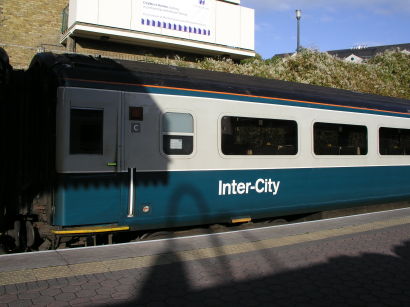A NEW union-sponsored report prepared by a transport pressure group has concluded that renationalising the railways would save at least £1 billion a year -- about the level of savings set out in the McNulty/DfT 'value for money' study published in May.
The findings have been revealed by the Transport for Quality of Life think tank, founded ten years ago.
2,000 people were surveyed as part of the TQL study, which was commissioned by the four main rail unions – ASLEF, RMT, TSSA and UNITE.
Of those surveyed, 71 per cent believed that franchised train operators were more concerned with making profits than providing the best possible service, with 'affordable' fares, while only 19 per cent believed that railway operators should stay in the private sector.
One consistent opponent of rail privatisation, RMT general secretary Bob Crow, has welcomed the report's findings.
They contradict the conclusions of Sir Roy McNulty in his research for the Department for Transport, in which he had concluded that renationalisation was 'unlikely to lead to a reduction in costs', and went on to blame the government 'to some extent' for the failure to achieve economies following rail privatisation.
In the wake of the new report from TQL, Mr Crow countered: "This research nails the lie of the McNulty review that the answer to the inefficiencies and over-charging on Britain's railways is more cuts, more rip-off opportunities for big business and higher fares.
"The solution is simple – stop the greed, fragmentation and profiteering of privatisation, and we can save more than a billion pounds that could be invested back into the system. If Labour fail to grasp the popularity and economic common sense of renationalising the railways, they will be throwing away the political opportunity of a lifetime."
The other unions have also backed the conclusions of the new study.
ASLEF general secretary Keith Norman said: "Last week, transport secretary Philip Hammond warned that the railways were becoming a rich man's toy. To prevent that disaster he needs to control the industry, and that can only be done by ending the anarchic free-for-all that's emerged from the discredited private franchise system."
Railway privatisation was a policy of the John Major government of the early 1990s. Control of the infrastructure was transferred from the British Railways Board to Railtrack on 1 April 1994, and the progressive transfer of the passenger businesses to private sector franchised operators followed in 1996 and 1997.
Other BRB businesses, including freight and the railway workshops, were sold outright.


